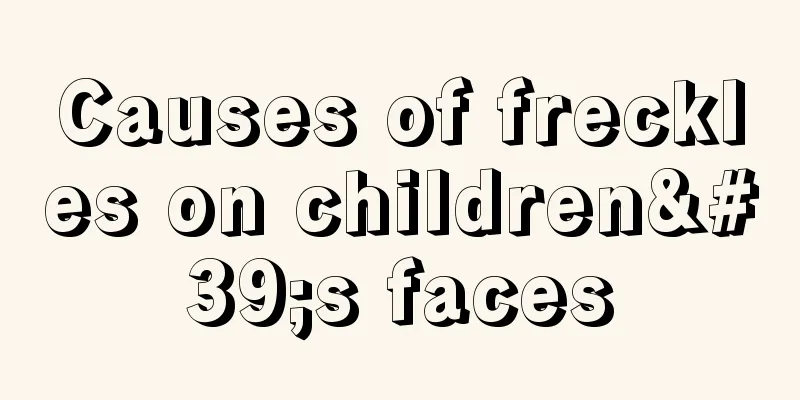Is childhood epilepsy hereditary?

|
Epilepsy is a very scary disease. It is a neurological disease that has a great negative impact on the patient's life. When epilepsy occurs, the patient will lose consciousness and make various irregular and crazy movements. In severe cases, there will be symptoms of foaming at the mouth. Therefore, epilepsy is very scary. Pediatric epilepsy is a type of disease with a higher incidence rate. Let's take a look at whether pediatric epilepsy is hereditary. Epilepsy, commonly known as "epilepsy", is a common neurological syndrome in children with complex causes and recurrent attacks. It is a convulsive seizure caused by paroxysmal, temporary brain dysfunction. The causes are divided into primary and secondary. The clinical manifestations are recurrent muscle twitches, transient abnormalities in consciousness, sensation, and emotion. It is mainly caused by the incomplete development of the child's nervous system, which leads to excessive abnormal discharges of the cerebral cortex due to stimulation.
There are two ways to determine whether epilepsy is hereditary. The most direct way is to look at the family history and investigate whether there are any members of the paternal or maternal family who have epilepsy in three to four generations. Generally, if it is hereditary epilepsy, at least two or three or more family members will have the disease, but members with acquired epilepsy must be excluded, such as those due to cerebral hemorrhage, brain trauma, brain tumors, etc. In addition, whether epilepsy is hereditary can be determined from a genetic perspective. Modern medicine has discovered some epilepsy-related genes. If similar genes are found, then there is a certain probability of inheritance. However, even if there is a problem with the gene, it does not guarantee that epilepsy will occur. Some are recessive and some are dominant. The hereditary epilepsy discovered so far mainly includes febrile convulsions, some benign epilepsy in infants and young children, and tuberous sclerosis. Although it is hereditary, such as tuberous sclerosis, the parents may have nodules without developing the disease, and some patients do not inherit the disease, but it is the result of their own gene mutation.In addition, there is a more objective phenomenon that most hereditary epilepsy is benign, that is, it only occurs in infancy and childhood, and is cured or rarely occurs after adulthood. It does not affect intelligence, and the child can study, work and have children like normal people. Only in this way can his epilepsy gene be inherited and passed down from generation to generation. People with more severe epilepsy have frequent seizures, low intelligence, and are unable to study, work or socialize. They either die prematurely from the disease or are unable to marry and have children, which causes the epilepsy gene to be eliminated. |
<<: Why does my child feel hot when sleeping at night?
>>: Why does a child's tongue peel?
Recommend
What are the symptoms of a concussion in children?
Concussion is still a controversial disease. For ...
What are the causes of throat polyps in children?
Polyps always make people feel uncomfortable. The...
What should I do if my child has rhinitis?
After a child has rhinitis, parents should pay at...
What foods can treat picky eating in children?
Children's picky eating has attracted the att...
How to prevent complications of colds in children
In daily life, children's colds are often ign...
Causes of blood in children's stools
If a child has blood in his stool, parents must p...
What can children eat to gain weight? These nutrients should keep up
Many mothers are envious when they see other babi...
At what age do children start to lose their teeth?
For every child, when they reach a certain age, t...
What to do if your child vomits repeatedly
For children, the intestines are very sensitive. ...
What causes baby diarrhea?
I believe that every mother will encounter baby d...
What causes nosebleeds in children?
Children's noses always bleed, which makes ma...
Children with Henoch-Schonlein Purpura
Allergic purpura is a very common skin disease. A...
What to do if the child doesn't eat?
Children's poor appetite is a problem that pa...
How to predict your height?
Minors are very concerned about their height and ...
What are the commonly used medicines for children's fever?
Fever in young children is self-limiting and gene...









